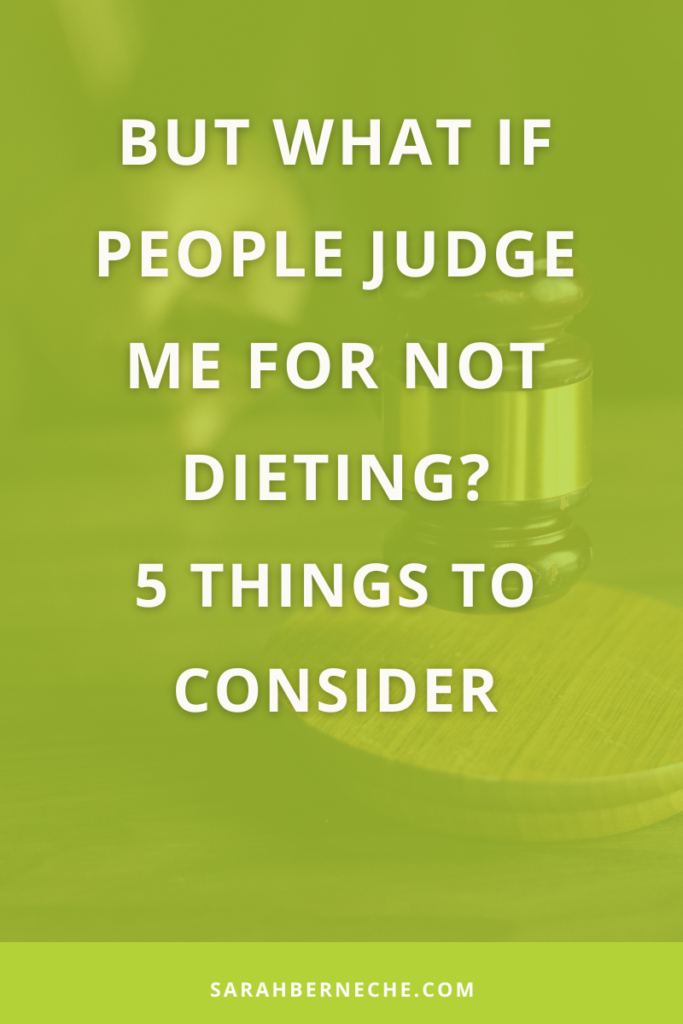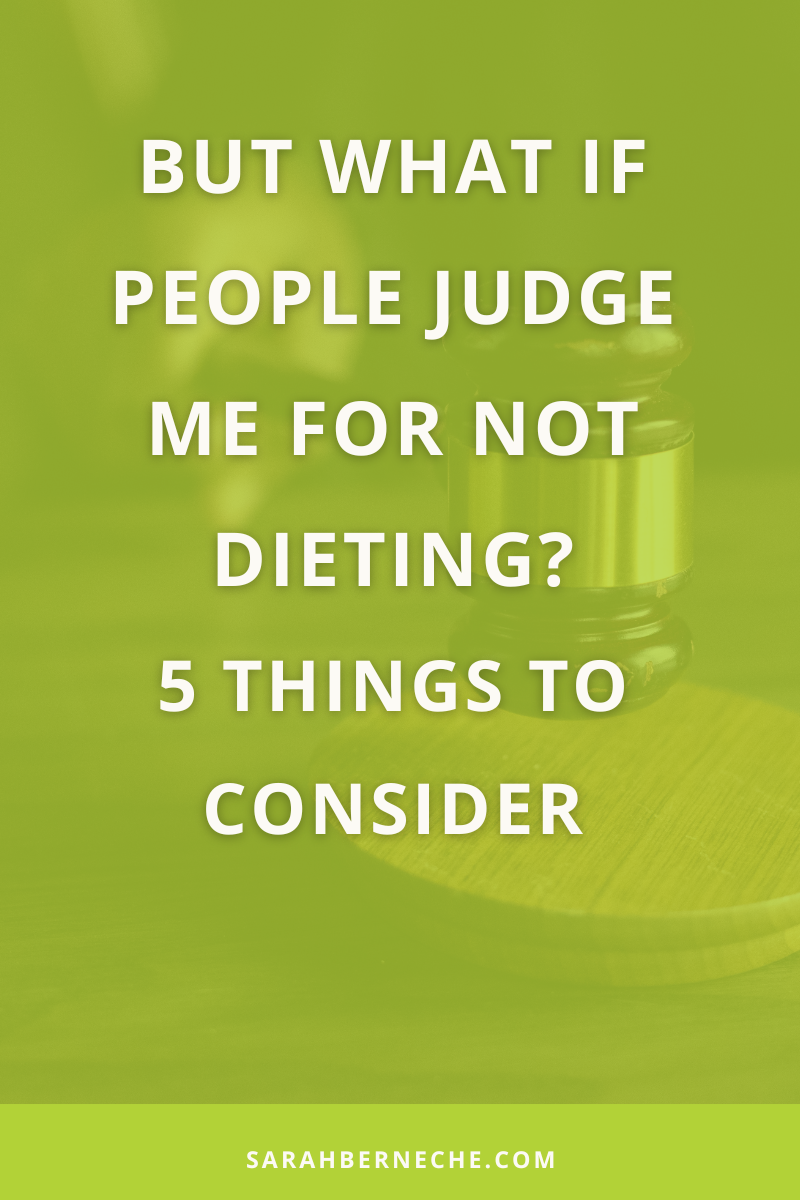Do you want to stop obsessing over food and your weight…but worry about what other people will say?
I get it: no one likes to be on the receiving end of painful body image comments.
And I know that because people often share the following sentiments with me:
- “I just wish other people would also get on board with body acceptance…”
- “If only the people around me would stop dieting…”
- “It would be so much easier to recover if people could embrace my natural body size…”
If you see yourself in one of those statements, know you’re not alone.
(And before I dive into today’s concern, I do want to share that “fear of judgment” exists on a spectrum. When some folks share their fear of judgment, they’re talking about the fear of painful body image comments or the loss of connection. Others are concerned about an increase in medical bias and poor healthcare, violence, and abuse. All of this is challenging, but I do want to clarify that not all of us experience judgment in the same way or face uniform repercussions for rejecting diet culture.)
While the fear of being judged for anything is entirely understandable, it doesn’t have to hold you back from a peaceful relationship with food and your body.

I’d invite you to consider the following points if you’re currently contending with the fear of rejection or criticism for pursuing Intuitive Eating or a non-diet approach:
- Thinness doesn’t make our lives rejection-proof.
Thinness may make things easier when it comes to dating, family, career aspirations, medical needs, and so on. That’s part of what’s involved in thin privilege. However, it doesn’t guarantee a life without rejection.
- It makes sense to feel uncomfortable when doing something counter-cultural — especially if external validation helps you to feel safe.
For many of us, controlling food and our weight provides the safety we don’t always feel on the inside. A move away from dieting can feel threatening because it jeopardizes one of — if not the way — we get security in this world. For many of us who’ve spent our lives trying to “be good” and “do the right thing,” going against dieting might be the first decision we’ve made that isn’t socially sanctioned.
Many of us fear being judged for our changing bodies or for our food choices. But in addition to fat phobia and a growing cultural fear of food generally, some of us worry that we ourselves will be viewed as bad or wrong for not dieting.
As you get stronger in your own beliefs about not dieting and body acceptance, and work to build safety and connection from the inside, you may find you feel more comfortable.
(This is part of why I incorporate a trauma-informed approach in my practice. By learning how to feel safer inside — and clarifying our values — we can develop the “scaffolding” to move away from dieting/disordered eating without it feeling like a threat to our safety.)
- Waiting for others to validate our needs and desires around food is a recipe for disappointment — especially if they can’t do it for themselves.
Are you less concerned about the culture at large and more concerned with what your family and friends will say?
Understandably, you’d want to share your excitement about Intuitive Eating and the non-diet approach with everyone you know. And while some people in your life may celebrate your decision not to diet, many others will be skeptical of your decision to accept your body as it is. Keep in mind that others cannot validate our decision to move away from disordered eating behaviours if they cannot do it for themselves.
People can’t give us things they don’t have.
- Just because people are using diet culture to feel secure and survive in this world doesn’t make it the “better” or “most effective” option.
While dieting and going along with thinness might seem like the better option, it doesn’t mean that it is. While there are pros and cons to not dieting, the same is true for dieting. We often don’t question it, but limiting what you can eat, how much, and when can get awfully stressful. Our beliefs about food and our bodies can also keep us from participating fully in life: swimming with our kids, wearing clothes we actually love, eating foods we enjoy, going out with our friends or loved ones, taking vacations, pursuing our dreams, and so on.
Dieting also gets progressively harder over time — so it’s not exactly a long-term regulation strategy.
- Suppose you’re concerned about the judgment of others, a part of you is still judging. When you still worry whether you’re doing the “right” thing and judge your body for changing and your food choices, it’s going to be difficult to embody the non-diet approach fully. All of this to say that if you find yourself concerned over what others might say, it’s an opportunity to consider your own self-judgments.
Want out of the diet cycle for good? Here’s how we can work together:
- Work with me 1:1. Together we’ll review your current relationship with food and your body, discuss your goals for our time together, and help you to feel safe with food and your body without #dietmath.
- New to Intuitive Eating and a non-diet approach? My book, Enjoy It All: Improve Your Health and Happiness with Intuitive Eating, offers a guide to finding lasting peace with food.

Comments +